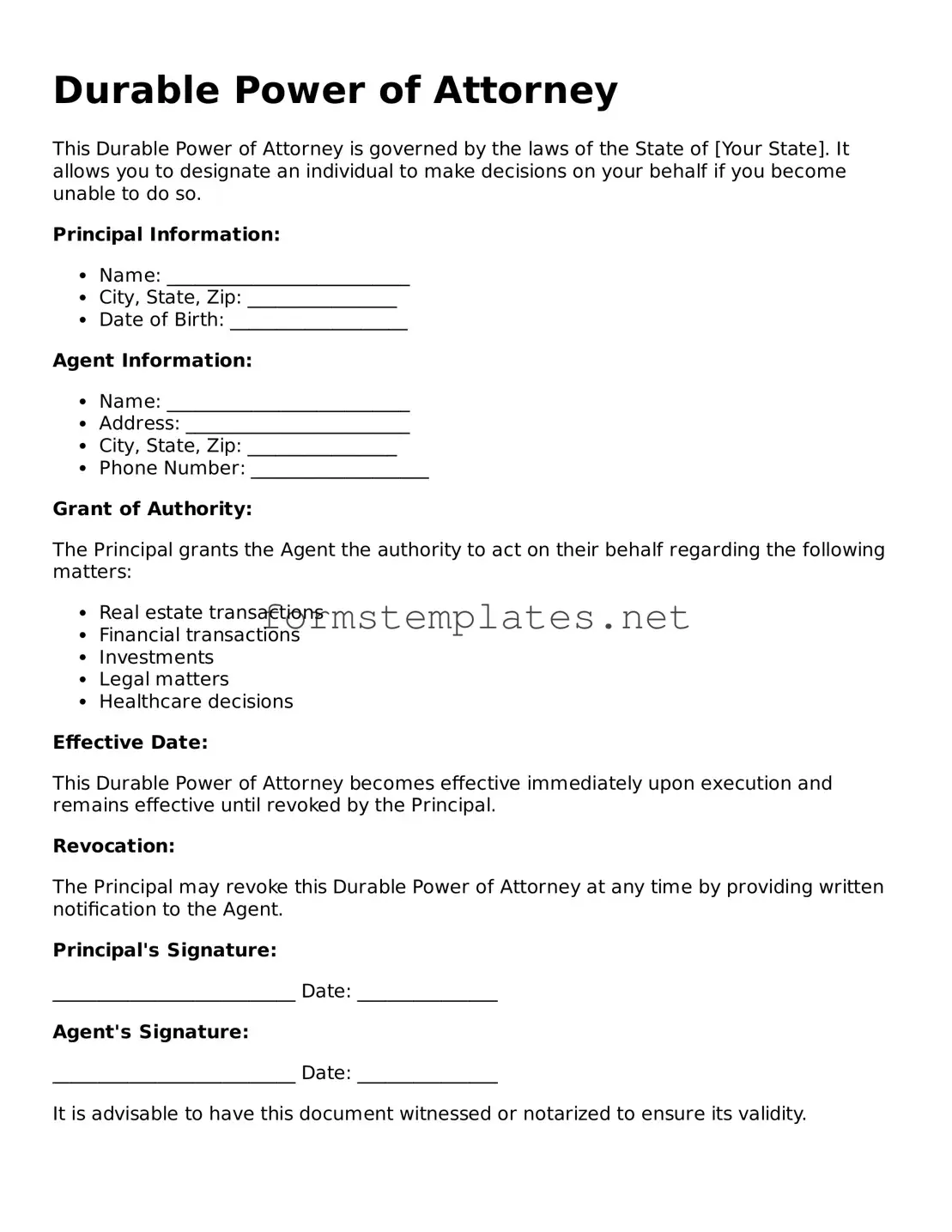What is a Durable Power of Attorney?
A Durable Power of Attorney (DPOA) is a legal document that allows an individual, known as the principal, to designate another person, referred to as the agent or attorney-in-fact, to make decisions on their behalf. This authority remains in effect even if the principal becomes incapacitated, ensuring that their affairs can be managed without interruption.
What decisions can an agent make under a Durable Power of Attorney?
The scope of authority granted to the agent can vary widely, depending on the specific terms outlined in the DPOA. Common areas of decision-making include:
-
Financial matters, such as managing bank accounts and investments
-
Real estate transactions
-
Tax matters
-
Legal decisions
-
Healthcare decisions, if specified
It is crucial for the principal to clearly define the powers granted to the agent to avoid any potential misunderstandings.
How is a Durable Power of Attorney different from a regular Power of Attorney?
The primary difference lies in the durability of the authority granted. A regular Power of Attorney may become invalid if the principal becomes incapacitated. In contrast, a Durable Power of Attorney remains effective during periods of incapacity, allowing the agent to continue acting on behalf of the principal.
How can I create a Durable Power of Attorney?
Creating a Durable Power of Attorney typically involves the following steps:
-
Choose a trustworthy agent who understands your wishes.
-
Determine the specific powers you wish to grant.
-
Obtain a DPOA form, which may be available online or through legal resources.
-
Complete the form, ensuring all required information is included.
-
Sign the document in accordance with state laws, which may require witnesses or notarization.
Consulting with a legal professional can help ensure that the document meets all legal requirements.
Can I revoke a Durable Power of Attorney?
Yes, a principal can revoke a Durable Power of Attorney at any time, as long as they are competent to do so. To revoke the DPOA, the principal should create a written revocation document, notify the agent, and inform any institutions or individuals who were relying on the DPOA.
What happens if I do not have a Durable Power of Attorney?
If an individual becomes incapacitated without a Durable Power of Attorney in place, family members may need to seek a court-appointed guardian or conservator to manage their affairs. This process can be lengthy and costly, and it may not align with the individual's preferences.
Are there any limitations to the authority granted under a Durable Power of Attorney?
Yes, there are limitations. A Durable Power of Attorney cannot grant an agent the authority to make decisions that are not legally permissible, such as making a will or voting on behalf of the principal. Additionally, the principal can specify any limitations within the DPOA itself.
Is a Durable Power of Attorney the same as a Healthcare Proxy?
No, a Durable Power of Attorney is not the same as a Healthcare Proxy. While a DPOA can include healthcare decisions, a Healthcare Proxy specifically designates an agent to make medical decisions on behalf of the principal. It is advisable to have both documents to cover different aspects of decision-making.

